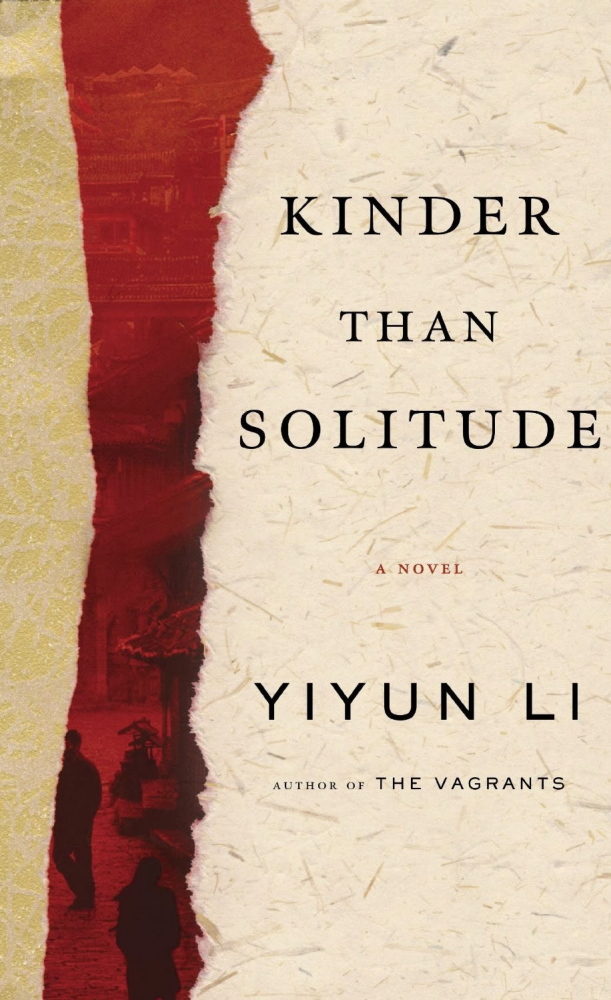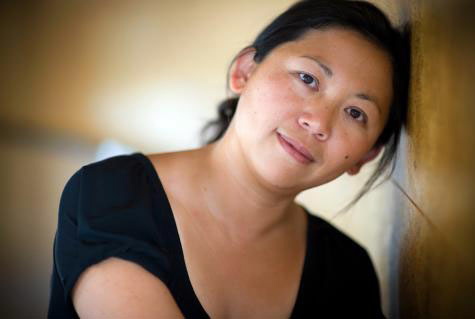Yiyun Li’s novels don’t go down easy. Her first, “The Vagrants,” filled as it was with desperate and ruined people wracked by a cruel system, offered up moments of dark humor, communion and even fleeting sweetness for those who could bear not to look away. Its damaged characters inflicted plenty of cruelty themselves, but the novel transcended their individual acts to form a nuanced if brutal portrait of a ravaged community.
To be sure, the people in Li’s novels – unlike those in her stories, who as a group exhibit more warmth – push at the boundaries of our empathy. “Kinder Than Solitude” – the second novel by Li, a winner of the Frank O’Connor International Short Story Award for her first collection and a MacArthur “Genius” Fellow – throws a raft of challenges our way, patiently ignoring certain readerly expectations about “likable” characters, immigrant fiction and even how a novel can begin.
It takes considerable confidence, after all – if not nerve – for a writer to set the opening scene of her novel in a crematorium, where a man waits in line for service as if at a Rite Aid. For one, we’re far from in medias res; with a corpse accompli, we’re made to understand this will be no tale of suspense. Then there’s the stale sorrow hanging over this processing plant of spent lives, the turgid banality of it all: the clipboard paperwork of death, the barren lawns and chintzy pavilions, the resentful workers and bickering customers, the grimly delivered fact that burnt bones must then be ground into powder.
The jaded man at the crematory is 37-year-old Boyang, there to see to the final extinguishment of Shaoai, a 43-year-old woman debilitated half her lifetime ago in a mysterious poisoning in which he himself is implicated, along with two female friends; the substance used to poison Shaoai was taken during a visit they made together to Boyang’s mother’s chemistry lab when they were high school students. The novel follows the three remaining friends’ responses to the 2010 death, tracing Boyang’s life in Beijing and those of Moran and Ruyu in the United States. Interspersed with these contemporary chapters are chapters set in 1989 Beijing in the weeks before the poisoning – and scant months after the bloodshed at Tiananmen Square – told alternately from the points of view of Ruyu and Moran.
In the late summer of that year, 15-year-old Ruyu arrives from a small provincial city, sent by her elderly “grandaunts” to attend high school in Beijing, where she boards with a kind couple known as Uncle and Aunt and their histrionic college-student daughter – Shaoai – in a modest, close-knit housing unit. Shaoai is awaiting punishment for her involvement with student protests in the spring. Just after the massacre in Tiananmen Square, she posted on a bulletin board calling the government “a breeding farm of fascists,” a statement she refuses to take back.
It’s not surprising that Ruyu is overwhelmed by the demands of her new life in the quadrangle, where everyone (cheerfully) knows everyone’s business; at night in her bed she silently asks God for strength and tranquility. She is puzzled by everyone’s insistence on viewing her as a stunted orphan, shy and disadvantaged by a peculiar upbringing. Her bedmate Shaoai, on the other hand, is enraged by the younger girl’s cool self-possession and soon brands her as an insolent in need of a lesson. “What is it like to have so much contempt for the world?” Shaoai asks her. “Do you feel anything?”
Boyang and Moran try hard to take the new girl under their wing. The two city children crisscross the side streets and alleys on their bikes as Ruyu rides on back, hoping to share their love of Beijing with their new friend. Li’s nostalgic descriptions of the Beijing of her youth count among the novel’s rare moments of lyricism:
Midsummer in Beijing, its extreme heat and humidity occasionally broken by a relieving thunderstorm, gave the impression that life today would be that of tomorrow, and the day after, until forever: the watermelon rinds accumulated at the roadside would go on rotting and attracting swarms of flies; murky puddles in the alleyways from overspilled sewers dwindled, but before they entirely disappeared another storm would replenish them; old men and women, sitting next to bamboo perambulators in the shadows of palace walls, cooled down their grandchildren with giant fans woven of sedge leaves, and if one closed one’s eyes and opened them again one could almost believe that the fans and the babies and the wrinkle-faced grandparents were the same ones from a hundred years ago.
The young Moran, a true romantic, believes in continuity with a fervent need. Her lifelong attachment to Boyang – whom she hopes to marry one day – and her trusting nature blind her to the feelings that soon develop between him and Ruyu. “Isn’t she a special person?” he finally whispers to Moran, when he can’t hold back any longer. But by this time, the chemical has been stolen from his mother’s lab and events have taken on an unstoppable force. After the poisoning the three are separated and Shaoai left little more than a vegetable.
The present-day chapters bear witness to the damage done: The three separated friends live out dispirited lives, four broken marriages between them. Boyang, divorced from a wife whom he drove to cheat on him, is a successful businessman whose current female companions are lower-class strivers with bleached hair hoping that this sugar daddy will be their ticket to a better life. Moran works a mindless job in quality control at a Massachusetts pharmaceutical company, which she finds “soothing,” enjoying “the unchangingness of the protocols, the predictability of the outcomes.” Having fled a companionable marriage to Josef, a man her parents’ age with grown children, she treasures “the blessing of solitude.” Ruyu lives in California, freelancing as a sort of high-end domestic, making self-involved upper-middle-class couples feel virtuous for employing an unthreatening, “clean” immigrant “with no advanced job skills” to “nanny” their dogs and tutor their children in Mandarin. She’s known as “Ruby” to these women, who condescend to tell her how much they, in their affluent soccer-mom busyness, envy her unencumbered, child-free lifestyle.
The American lives of Moran and Ruyu are far from the immigrant stories we’ve grown accustomed to in fiction, those family-centered, often boisterous, ultimately poignant tales of negotiations in belonging. But such negotiations require a counterpart, and Li’s characters decline to engage, exposing a different stratum of immigrant life. Far from struggling with self-reinvention, these women are unflagging in their devotion to inwardness (Moran) and self-erasure (Ruyu). “One would have to take oneself much more seriously to be someone definite,” Ruyu muses, “to claim the right to be a friend, a lover, a person of consequence.” These women’s stories, like their lives, shunning unnecessary ornamentation, are told in a plain, matter-of-fact style miles away from the sentimental.
This unconsoling novel questions the purpose of guilt, and in turning aside our conditioned expectations encourages us to extend the borders of our compassion.
Send questions/comments to the editors.




Success. Please wait for the page to reload. If the page does not reload within 5 seconds, please refresh the page.
Enter your email and password to access comments.
Hi, to comment on stories you must . This profile is in addition to your subscription and website login.
Already have a commenting profile? .
Invalid username/password.
Please check your email to confirm and complete your registration.
Only subscribers are eligible to post comments. Please subscribe or login first for digital access. Here’s why.
Use the form below to reset your password. When you've submitted your account email, we will send an email with a reset code.